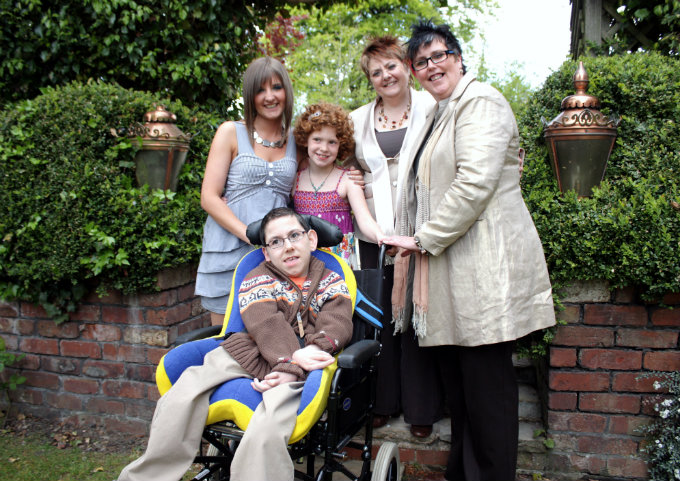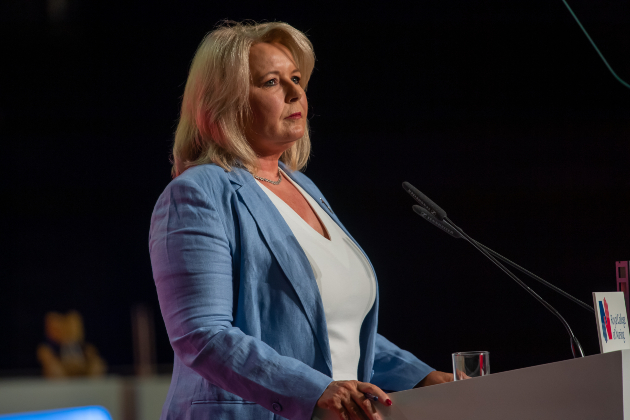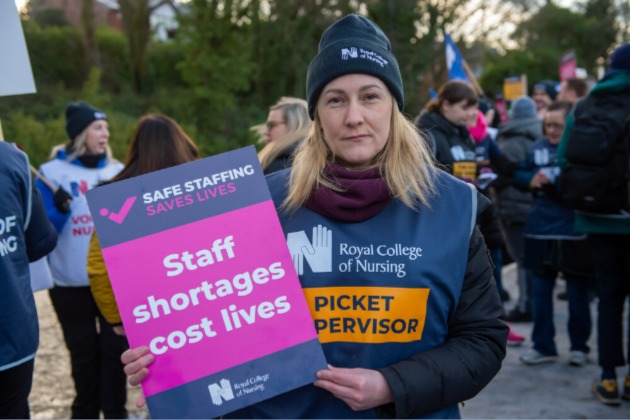Josh Cawley had complex needs caused by catastrophic injuries his birth parents inflicted on him when he was a baby, which left him unable to speak or move from his wheelchair.
In 1994, Lynn Cawley and her family adopted Josh and looked after him until he died at home aged 22.
It was a highly distressing experience. The complex needs of Josh and his adoptive family were inadequately identified, assessed and supported by health and social care professionals.
With the support of various organisations, they've been fighting for fairer end of life care for people with complex needs ever since.
Lynn shares her experiences:
“Like most other children and young people with complex needs, Josh suffered discrimination in all aspects of his life. We had to fight hard for good schooling, access to health and social care and, ultimately, access to a good death.
“We became aware that Josh was coming to the end of his life in February 2012 and we made plans for him to die at home as our experience of hospital care had always been negative. We didn’t know that we would spend the next few precious months fighting for basic rights afforded to other young people in Josh’s situation.
“A number of factors were working against us; the fact that Josh did not have cancer, could not communicate and needed specialist equipment all meant that we, as a family, did not fit into the standard boxes.
We had to fight hard for access to a good death
“Over the next few months, Josh became very poorly and we quickly realised we were out of our depth. Death was not like it is on EastEnders. Josh was vomiting blood and we asked if he could go into our local hospice. We were told that Josh’s care needs were too complex and therefore we were not able to access the hospice.
“Community nurses did what they could but Ruth and I were left to care for our dying boy without the support we so desperately needed. Josh died in his bed in the living room and we were left bereft and confused.
“Why couldn’t the hospice manage Josh’s complex needs? Why is there so little flexibility in end of life care and why at the very end of life was Josh not offered the same opportunities for care as his peers?”
 Josh and his family
Josh and his family
Why is there so little flexibility in end of life care?
Josh and his family’s journey has acted as a catalyst for learning
New resources have been launched as part of a collaborative piece of work between the RCN Pain and Palliative Care Forum, Skills for Care, Hospice UK and Josh's family.
They include a training facilitator handbook and learning reflection templates for all nursing and social care staff who may come into contact with people approaching end of life. The aim is to raise awareness of the multiple challenges that can arise when a young person with complex needs is dying.
The work was inspired by the play Bounce Back Boy, written by Brian Daniels, to share the experience of Josh and his family. In May 2018 the play was made into a film.
This educational package seeks to spread the message of good end of life care for people like Josh, and to challenge a system that so easily discriminates.
Dr Kate Lillie, lead on the project from the RCN Pain and Palliative Care Forum, says: “The experience of Josh and his family highlights the cost to patients, family and friends when care needs are not fully met. The forum was delighted to be involved in this important project and hopes the resources will support all nursing staff in the care of individuals with complex needs as the end of life approaches."
Find out more
Read more about Josh's story and access end of life care resources from the RCN Pain and Palliative Care Forum. Visit the main forum pages to find out more about their work and request to join.
Download the Bounce Back Boy educational resources, including the training facilitator handbook and learning reflection templates.
Visit the Skills for Care website.
Words by Leah Williams








